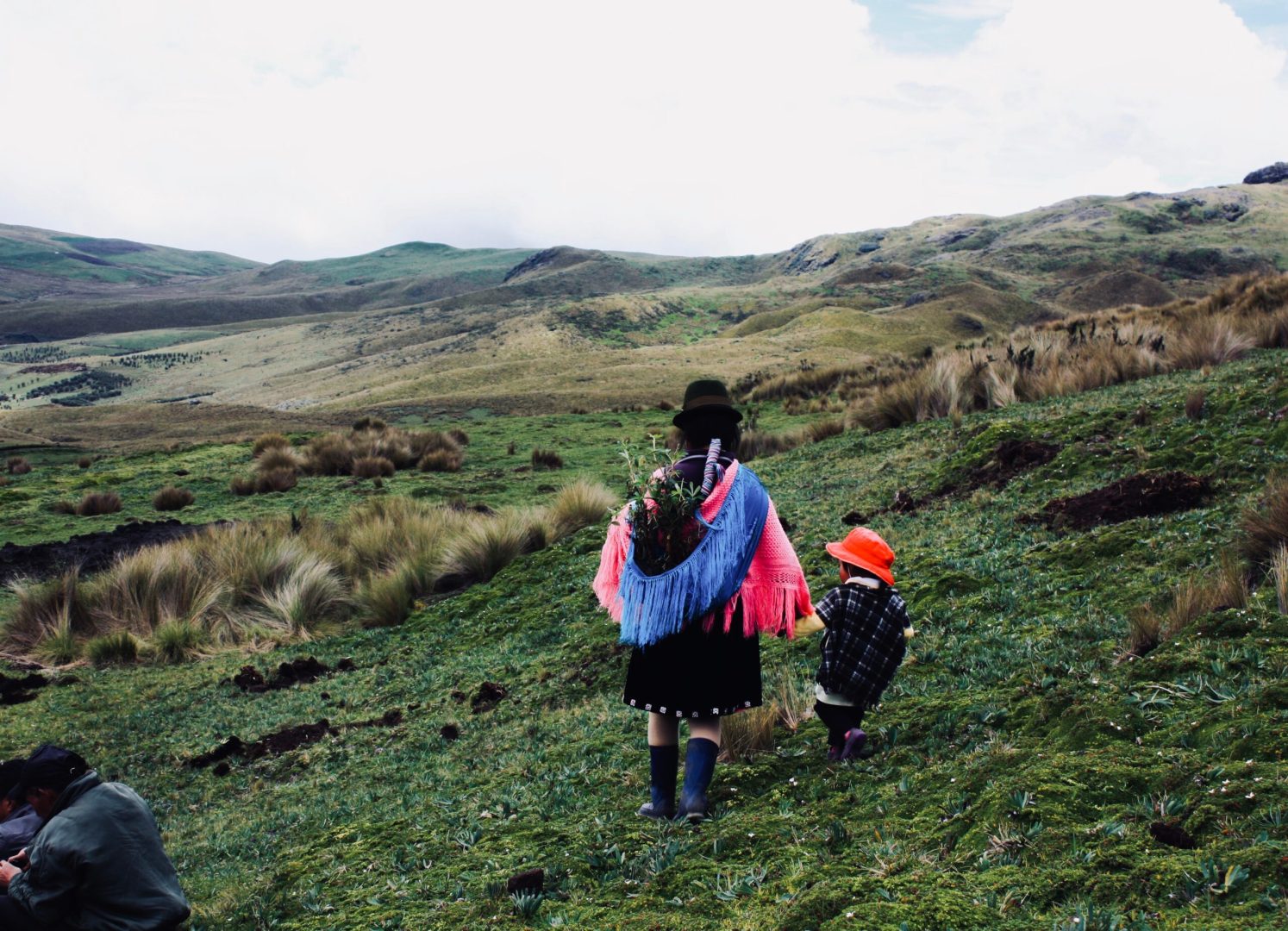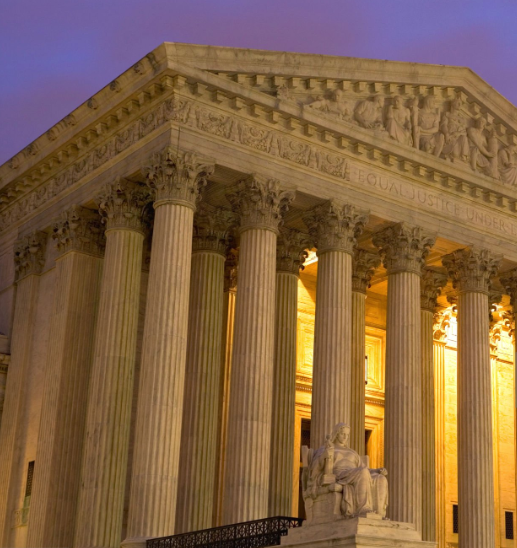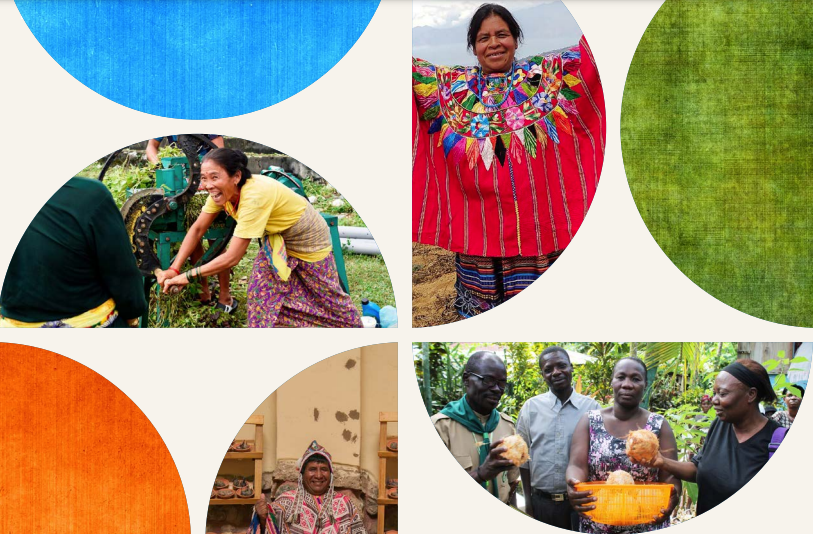The Detroit Food Commons, a $22 million community project that will house shared use kitchens, a community meeting space, offices, outdoor vendor booths, and The Detroit People’s Food Co-op (a Black-led, community owned grocery store) broke ground in April 2022. Spearheaded by our member Detroit Black Community Food Security Network (DBCFSN), the Detroit Food Commons is located on Detroit’s main street, Woodward Avenue in the historic North End neighborhood.
Although Detroit’s population is more than 80 percent Black, before this year, the city hasn’t had a Black-owned grocery store since 2014. (The Detroit People’s Food Co-op is in development and the Linwood Fresh Market, a 1,200 square feet Black-owned grocery store opened earlier this year.)


The Detroit People’s Food Co-op provides Detroit’s majority African American population with a chance to own a share of a grocery store. By building their own neighborhood’s food supply chain and marketplace, DBCFSN is creating a Just Transition, moving away from business models that extract wealth and toward a local living regenerative economy that supports thriving human ecosystems, addresses injustices, and builds community in ways that are sustainable for people and the planet.
“In Detroit, as in most Black communities across the United States, the retail food economy functions in an extractive way. The stores are owned by other ethnic groups or large corporate interests. The wealth that is needed to build strong, healthy, resilient communities is stripped away to enrich others. We are striving to contribute to a more circular economy,” said Malik Yakini, Executive Director of the Detroit Black Community Food Security Network.
For 13 years, DBCFSN has worked in the community and with partners like Develop Detroit Inc., a non-profit developer, to raise the $22 million necessary to begin construction. Yet a $1 million gap remains to secure its opening.
Despite the compelling nature of their work and the apparent need, why did it take a Black-led project within a majority Black city over a decade to raise seed funding?
We hear stories of disinvestment like this from Climate Justice Alliance’s 89 member organizations and others in the movement who are building climate justice solutions all across the country. The excuses to not fund our work run the gamut (and come from investors and funders alike); they rely on myths that claim that community-led projects are not “ready” for financing or “financially viable, or that they are “too risky” or “too small in scale.” None of these myths account for the historic disenfranchisement, extraction, and marginalization that have made building wealth disproportionately challenging in frontline communities.
Alarmingly, with the influx of Inflation Reduction Act and other federal monies funding towards “climate solutions”, we are concerned that the same myths will cause similar patterns of disinvestment in environmental justice communities as well as allocation to harmful techno-fixes, like hydrogen and carbon capture and storage, if strong guidelines and accountability structures are not in place to ensure justice, equity, and reparation of past harms.
Ten years since the Climate Justice Alliance formed, we built the infrastructure for an economy that decentralizes wealth and power, developed our capacity to mobilize resources, and channeled those resources to frontline environmental justice communities that are building real solutions to the climate crisis. In April, we were able to invest $500,000 in DBCFSN’s Detroit Food Commons, through the Our Power Loan Fund, a collectively governed non-extractive revolving loan fund with 0% interest rates and flexible repayment terms. In total, we’ve been able to allocate $1.5 million towards six community climate solutions so far this year.
But we need philanthropy to implement their values with us and jumpstart the new economy.
Of the roughly $93 trillion flowing throughout global financial markets in 2020, nearly $1.2 trillion of that came from U.S. based philanthropic investments. During that year, those same foundations gave out $88.6 billion in grants. This means that philanthropic institutions in the U.S contributed over 13 times the amount of money to extractive global stock markets as they did to all of their focus areas, of which solutions to the climate crisis are consistently one of the least funded issues.
Then of the limited grant funding towards climate solutions, an even smaller amount goes towards environmental and climate justice solutions. A recent study of environmental grantmakers found that environmental justice organizations in total received less funding than the value of a single grant to a single mainstream environmental organization. NCRP’s own report in 2009 found “only 11 percent of environmental grant dollars were reported as advancing social justice.”

How can we begin to address the climate crisis with bold shifts when philanthropic institutions’ endowments and grantmaking are still heavily invested in top down strategies, techno-fixes, and the dig, burn, dump economy even as they purport to support systemic change?
CJA’s Our Power Loan Fund, established in 2017, is just one part of a burgeoning new regenerative economy bolstered by incubators and community-governed loan funds like Seed Commons, Kheprw Integrated Fund, and more. And just as important as channeling the resources, these financial vehicles put communities, people, and relationships first, building wealth in ways that support us, not deplete us.
For Earthbound, a Black-owned sustainable materials construction cooperative based in rural Maryland, it was more than just the loan. While the loan allowed them to make a capital investment (buying a truck) that was able to help scale their business to the right size, it was about changing the way we engage with one another.
“The conversations with traditional banks were immediately one-sided in their favor. With Our Power Loan Fund, there was reciprocity, shared trust, interest in us and us being the best we could be. It was an opportunity for our small coop to get a truck and trailer, but more importantly, to engage with capital and loans and finance without [the process] feeling so extractive,” said Dom Hosack, Earthbound co-owner and a steward of the Our Power Loan Fund.
Our loan terms are co-created with the folks we lend to, and financial decisions are made by a governing committee composed of CJA members. When the loan is repaid, together, we reinvest the money into another project that needs capital to scale its impact.
CJA’s Reinvest in Our Power Campaign is making a bold ask of philanthropy – move $100 million into movement accountable financial vehicles to ensure your investment practices match your values. This year alone the OPLF has $10 million in projects ready to be implemented. This is an opportunity for foundations to align their investments with their grant-making and their values while seeding the regenerative economy.
Last year, Hidden Leaf Foundation made its largest-ever direct investment into a fund of community control, investing $500,000 in the Our Power Loan Fund, expecting a 0% financial return.
We need more philanthropic institutions like Hidden Leaf Foundation to meaningfully invest in climate solutions that center equity and justice, people and our planet.
As Supriya Pillai, Executive Director of Hidden Leaf Foundation, wrote: “We know that for many, including ourselves, funding big can feel like a stretch, but just imagine what climate solutions are going to cost us in a decade. We know it’s smarter to invest big now rather than down the road, when the resources it will take to reach real solutions may be out of reach, the sacrifices too great, and worse yet, the time not enough.”
_________________________________________________________________________________________________________
Marion Gee is the Co-Executive Director of the Climate Justice Alliance.

More Responsive Philanthropy





